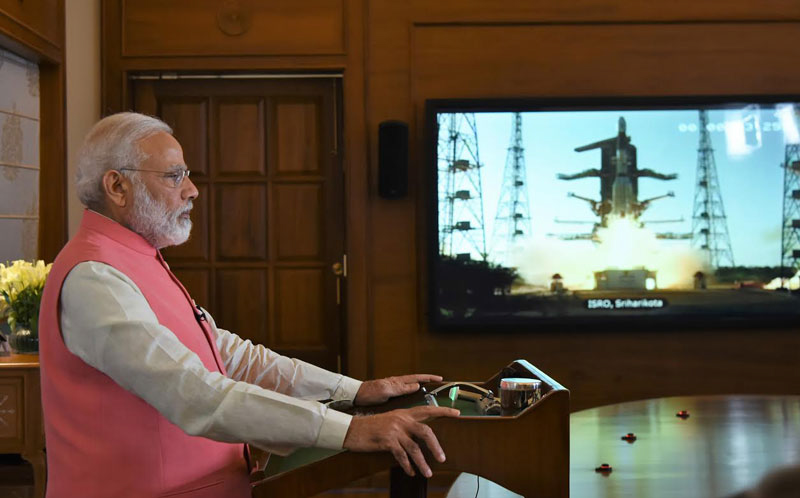ISRO’s vision aligns with the Prime Minister Narendra Modi’s directive of ensuring Human presence in Space – S. Somanath
By R. Anil Kumar
- Prime Minister Narendra Modi wants ISRO to establish continuous Human presence in Space
- ISRO Chairman highlighted PM Modi’s steadfast support for India’s Space endeavours
- ISRO’s long-term vision aligns with India’s aspirations of playing a significant role in Space science and Technology
- India’s Space Agency’s strategic move aims to enhance its presence and contributions in the global space community
Bangalore, January 16. ISRO Chief S. Somnath, said that Prime Minister Narendra Modi has been an ardent supporter of space programmes.

Reflecting on the recent successes and the guidance provided by Prime Minister Narendra Modi, Somanath emphasised the nation’s commitment to establishing a continuous human presence in space.
“The Prime Minister has always been a fervent advocate for our space endeavours,” Somanath stated, recalling PM Modi’s support even during hard times, when Chandrayaan 2, failed to achieve the desired soft-landing, and crashed on to the moon at the very last minute.
Somanath assured that the future plans are within reach, and that they are already in motion.
ISRO targets constructing an Indian space station by 2035, he said and also highlighted the future roadmap for ISRO.
The ISRO Chairman outlined India’s ambitious vision for its space programmes.
“Following the triumphs of the past six months, PM Modi has charted a course for us that extends beyond our current projects. Our goal is not just to execute the Gaganyaan mission but to sustain human activities in space, leading to an Indian astronaut setting foot on the lunar surface by 2040,” Somanath said.
The timeline may seem distant, but Somanath assured that it is within reach, with plans already in motion to make this dream a reality. He also highlighted the target of constructing an Indian space station by 2035, which would serve as a platform for Indians to conduct research in microgravity conditions.
Somanath’s assurance comes on the heels of a series of successful missions and announcements by ISRO, including the launch of the Aditya-L1 spacecraft to study the Sun from the first Sun-Earth Lagrangian point (L1) and the X-ray Polarimeter Satellite (XPoSat) to analyse cosmic X-rays.
Moreover, the chairman discussed the future roadmap for ISRO, which includes the Venus Orbiter Mission, Shukrayaan-1, scheduled for December 2024 or 2025, and the ambitious plan to launch the first module of an Indian space station by 2028.
The space agency is also preparing for the Gaganyaan mission, with a series of tests planned throughout 2024 to ensure readiness for the targeted 2025 launch.
ISRO’s vision aligns with the Prime Minister’s directive to land an Indian on the moon by 2040, a goal that symbolizes the nation’s aspirations in space science and technology.
With a history of cost-effective and successful missions, ISRO continues to play a pivotal role in India’s development, contributing to educational, agricultural, communication, and defence sectors.





